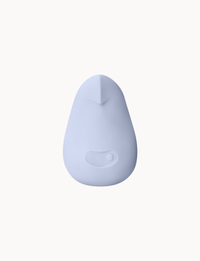Leakage happens, but it doesn’t have to. Urinary incontinence, often oversimplified to a weak pelvic floor, can be a lot more complex and nuanced than it may seem. Arm yourself with the knowledge to take control and empower your body and stop unwanted leakage.
What is urinary incontinence?
Urinary incontinence is defined as leaking urine when we don’t intend to. It can happen during all sorts of situations- exercise, coughing, sneezing, sex, or associated with a sudden, strong urge. Urinary incontinence is more common in vagina-owners than penis-owners, partially because the urethra passes through the prostate, which acts like an additional pressure valve to stop leakage. Pregnancy can also play a role in prevalence, though delivery methods may not. Urinary incontinence falls into a couple of different categories based on symptoms.
- Stress incontinence: think leaking urine while you’re coughing, sneezing, exercising, or anything that increases pressure in the abdomen
- Urge incontinence: you’re minding your own business, then suddenly the urge to pee crashes in like a wave. You race to the bathroom and start leaking on the way there. This strong, sudden urgency is the defining component of urge incontinence
- Mixed incontinence: components of both stress and urge incontinence
- Overflow incontinence: looking at you, folks who can hold their bladder for what feels like forever. When the bladder gets overly full, it can spill over and dribble out through the urethra
Urinary incontinence can be frustrating and embarrassing, but it’s not something that you have to live with.
Why does urinary incontinence happen?
Mechanics of urination look like this: sit down on the toilet, relax the pelvic floor to decrease pressure on the urethra, the smooth muscle of the bladder (detrusor) contracts, and the bladder empties. Simply put, leakage happens when the pressure in the bladder is greater than the pressure in the urethra. Urethral pressure is generated by the pelvic floor muscles, and pressure in the bladder can change with volume of urine, or any time pressure in the abdomen (intra-abdominal pressure) changes, such as with a cough or sneeze. Stress incontinence might occur because:
- Pelvic floor weakness: the ultimate scapegoat. Yes, certainly weakness in the pelvic floor muscles can cause incontinence, but don’t assume you’re leaking because you’re weak
- Overactive (hypertonic) pelvic floor: when muscles are already in a contracted state, they can’t contract any further to produce additional force to stop leakage from happening
- Impaired coordination of the pelvic floor: the pelvic floor muscles may have adequate strength and flexibility, but they don’t have the right timing to turn on to stop leakage from happening
- Pressure management in abdomen: an important part of posture and lifting mechanics is how we regulate pressure in the abdomen, called intra-abdominal pressure. When we generate too much pressure in the abdomen without a concurrent pelvic floor contraction, like with breath holding or poor body mechanics, the bladder can leak
Regarding urgency, let’s remember that the detrusor is very sensitive to stretch. We’re not born continent, and we have to learn to associate bladder filling with a trip to the bathroom. How much the bladder fills before we get the signal to go is often what’s compromised when we experience urinary urgency. When that bladder is emptied very often, say every hour or so, it becomes more sensitive to stretch and may give you the signal to go earlier. Or if you’re not able to empty your bladder regularly, like someone employed as a teacher or a nurse, the opposite effect may happen where your bladder gets very full before you get the signal to go. It makes sense to empty a full bladder, but running to the bathroom to empty only a small amount of urine can be a big pain. Urgency might occur because:
- You have a UTI. A sudden increase in urinary urgency and frequency warrants a lab test to rule out infection
- Overactive pelvic floor muscles may also contribute to feelings of urgency
- Bladder irritants: certain foods and beverages, typically those high in acid and low in pH, can irritate the lining of the bladder, causing a strong urge to go. This includes things like coffee, chocolate, alcohol, carbonated water, or citrus. If you notice bladder symptoms associated with certain foods, or after your morning cup of coffee, bladder irritants may be involved
- Fascial tension: the bladder and urethra doesn’t float in space- it’s attached in the abdomen by several ligamentous and fascial structures. When that fascia contracts and pulls on the bladder or urethra, you may experience urinary urgency
Urinary incontinence during sex
Conversations about leaking urine are few and far between, but it’s even less common to discuss leaking urine during sexual intercourse. But it happens frequently, up to 27% of vagina-owners, according to one study. This can be due to detrusor overactivity (involuntary contractions of the smooth muscle of the bladder), or changes in intra-abdominal pressure due to breath holding or positional changes. Squirting during sex was once thought to be urine, though it’s still up for debate and appears to also contain some glandular secretions as well. Urinary incontinence during sex benefits from several of the same treatment as other types of incontinence.
What to do about urinary incontinence
Urinary incontinence seems, erroneously, almost like a badge of honor in some circles, particularly amongst those who’ve given birth. And though it’s common, it’s certainly not a life sentence. If you’re noticing incontinence, where do you start?
- Start by keeping track of your symptoms. When do they occur? How much urine do you leak? How often does it happen? Bladder diaries can be helpful in tracking your symptoms
- Finding a pelvic floor physical therapist near you can help you to address the cause of your urinary incontinence and tailor a treatment program accordingly. Even if you don’t have one in your area, seeking treatment via telehealth may significantly improve your symptoms
- Urodynamic imaging, used to visualize bladder filling/emptying, can also be a helpful diagnosis tool in figuring the ‘why’ behind incontinence
- Decrease bladder irritants if you notice an association between a food/beverage and your symptoms. If you can’t bear to part with your morning coffee, drink a sip of water between sips of coffee to help dilute it as it’s heading for your bladder
- Medications: prescribed by a licensed physician, the vast majority of these treat symptoms of urge incontinence, not stress incontinence. If other interventions haven’t worked for urge incontinence they may be a helpful adjunct, but are rarely sufficient in isolation
- For vagina-owners with atrophy of the vulvar tissues, such as with any decrease in estrogen or menopause, urethral bulking agents may help with stress incontinence in conjunction with pelvic floor physical therapy. Like the name suggests, they actually bulk up the tissue around the urethra, creating a greater ability to produce force and keep the urethra closed
- Surgery, like a Burch colposuspension, may be an option, though like any surgery, it comes with some risks
- Several products on the market claim to ‘fix’ urinary incontinence in as little as 4 weeks. As much as it’s tempting to buy a fix-all product, most of these products focus on pelvic floor strengthening. Don’t assume that your urinary incontinence is caused by weakness!
Urinary incontinence can be frustrating and embarrassing, but it’s not something that you have to live with. Identifying your symptoms and taking the forward steps to receive treatment, if you choose to do so, can help to remedy this issue.




















































